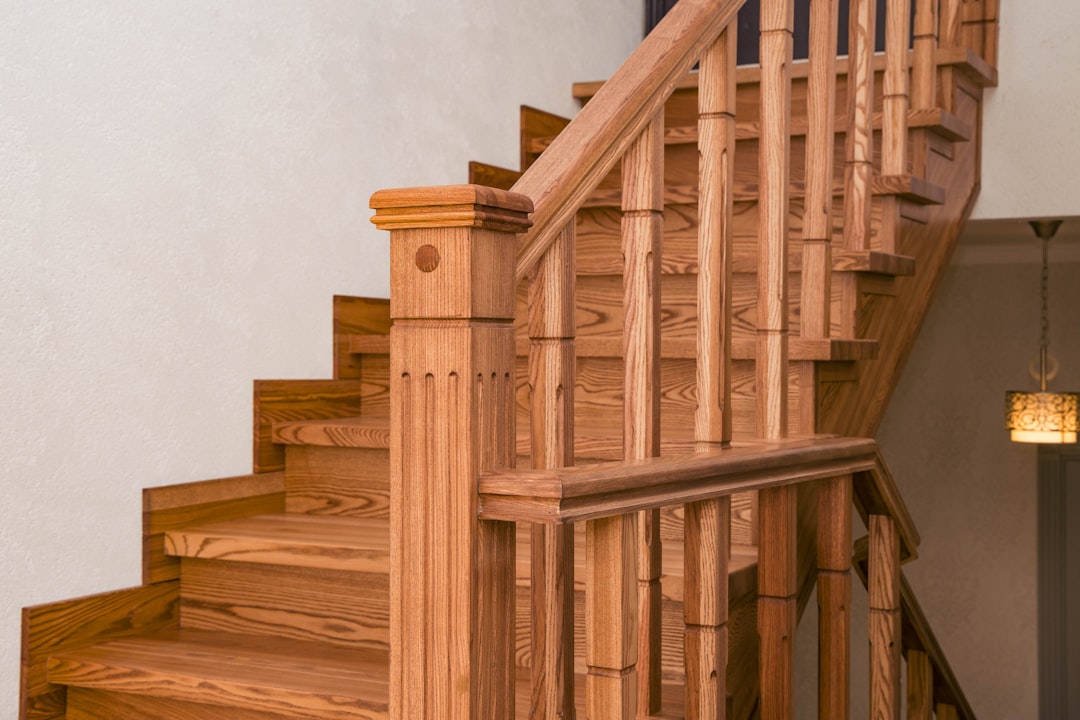Hardwood Stairs Cost Guide | CountBricks Residential
Price source: Costs shown are derived from our proprietary U.S. construction cost database (updated continuously from contractor/bid/pricing inputs and normalization rules).
Eva Steinmetzer-Shaw
Head of Marketing
Understanding Hardwood Stairs Cost for Professionals
For construction professionals, understanding the cost of hardwood stairs is crucial for accurate project budgeting. Current estimates for 2026 show that costs can range significantly based on material and design choices. For example, basic oak stairs can cost between $3,800–$8,900 and $3,800–$8,900, while more complex designs like curved walnut stairs can exceed $12,000+. This guide will help you navigate these costs and optimize your project planning.
The Three Core Cost Drivers
1. Material Selection
Choosing the right material is essential. Options like oak, walnut, and maple each have different price points and characteristics.
- Entry-level oak treads: $95–$140 per step
- Premium walnut: $200+ per step
- Factory-finished boards: Add 8–12% to material costs
2. Labor & Complexity
Labor costs vary with the complexity of the staircase design.
- Standard straight flight: 8–12 labor hours
- L-shaped or winder layouts: 14–20 labor hours
- Custom designs: 25+ labor hours
3. Site Conditions & Prep
- Demolition of carpeted treads: $100–$250 per step
- Sub-structure reinforcement: $300–$700
- Dust containment: 5–7% increase in project overhead
Average Hardwood Stairs Cost Range
Based on current data, here are some average cost ranges:
- Basic straight hardwood staircase: $3,800–$8,900
- Mid-grade L-shape with landing: $12,000+
- Showcase curved walnut staircase: $12,000+
How CountBricks Generates Your Estimate
Step-by-Step Digital Workflow
Our process involves capturing your project details through a voice session, uploading blueprints, and using AI to generate a detailed cost estimate. This ensures accuracy and transparency.
Savings You Can Expect
Our system reduces unnecessary costs by providing precise estimates, saving an average of 7% on materials and 5% on labor compared to traditional methods.
Choosing the Right Hardwood
Consider factors like durability and appearance when selecting hardwood.
- Red Oak: Budget-friendly, Janka 1,290
- White Oak: Water-resistant, Janka 1,360
- Maple: Harder surface, may blotch when stained
- Walnut: Luxurious tones, softer
Finish & Railing Upgrades That Impact Cost
- Prefinished treads: Add $18–$25 per step
- Water-borne finishes: $2–$3 per square foot
- Metal balusters: $12–$22 each
- Glass or cable rail: $110–$150 per linear foot
Hidden Costs to Watch For
- Electrical relocation for newel post lighting
- Code upgrades during remodel
- Delivery surcharges for curved stringers
Financing & Scheduling With Confidence
Our platform offers flexible payment options and scheduling tools to keep your project on track.
Ready to Start?
Visit CountBricks.com to schedule a consultation and get a detailed estimate for your project.
CountBricks Case Spotlight: The Harrington Remodel
The Harrington family transformed their staircase with CountBricks, saving 12% on their budget. Our AI mapped their stairs in seconds, and material simulation saved $1,140.
Pro Tips for Keeping Costs Down
- Order prefinished treads to save time
- Opt for box newels over turned posts
- Bundle stair work with flooring installation for discounts
Next Steps
Upload your quotes to CountBricks.com for a free cost check and explore value-engineered alternatives.
Contact Us
Schedule a voice estimate at CountBricks.com or speak with a project advisor today.

